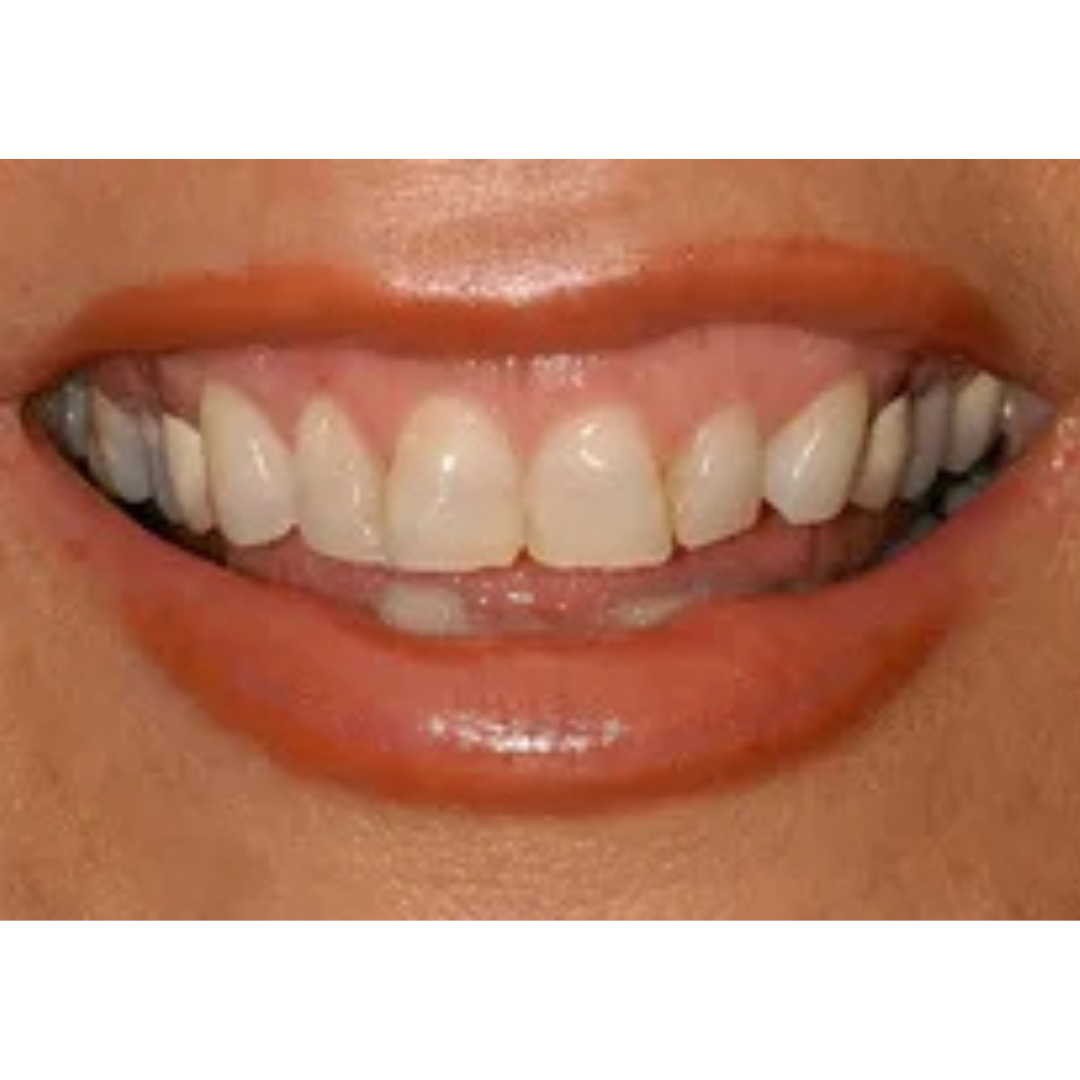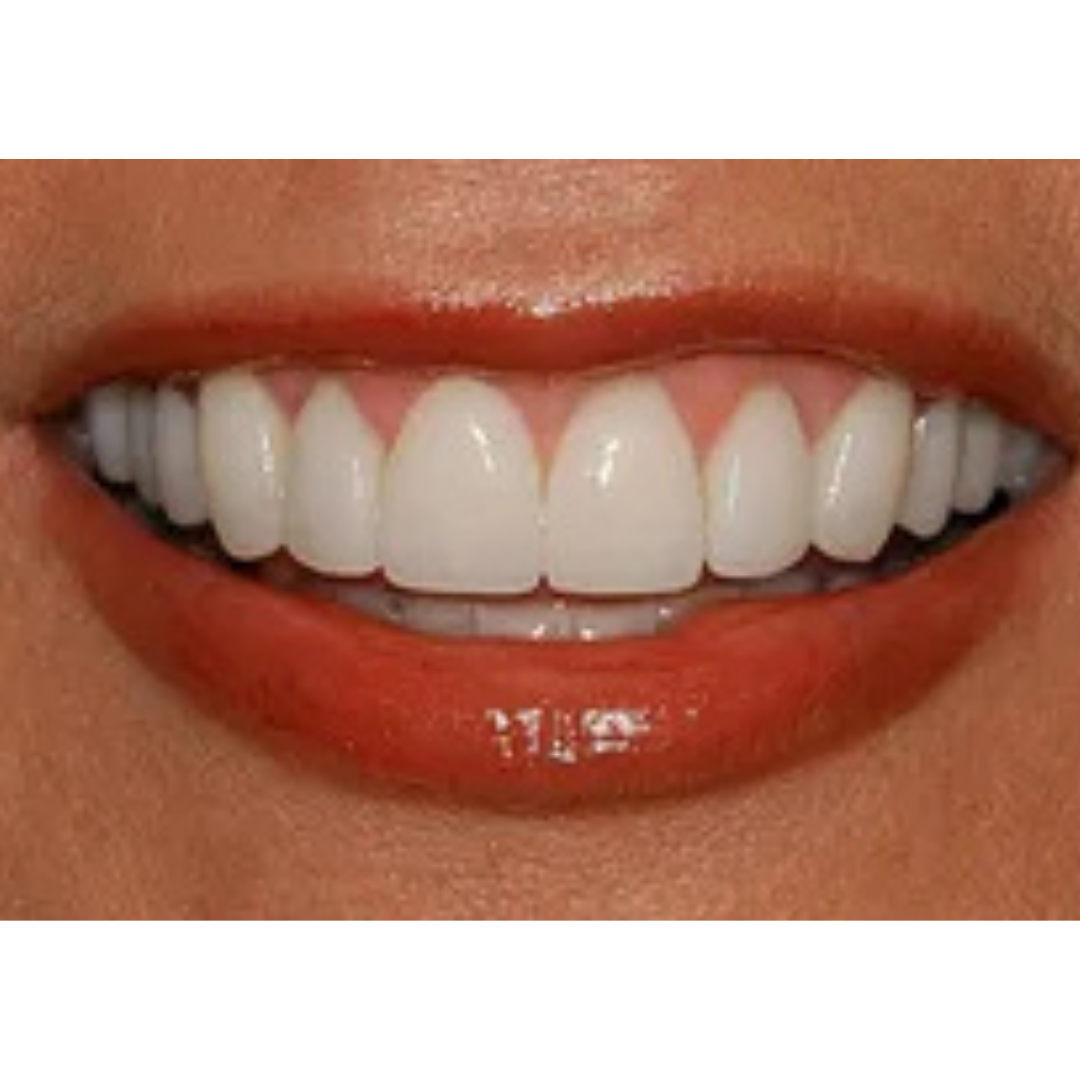Dental Veneers
What Is Dental Veneers
Dental veneers are thin, custom-made shells of tooth-colored materials designed to cover the front surface of teeth to improve appearance. These shells are bonded to the front of the teeth, changing their color, shape, size, or length. Veneers are commonly made from porcelain or composite resin materials, both of which mimic the natural appearance of teeth.
–
–
Before Surgery


After Surgery
Types of Dental Veneers
- Porcelain Veneers: These are the most commonly used type of veneers and are renowned for their durability and natural appearance. Porcelain veneers are stain-resistant and reflect light similarly to natural teeth, making them an excellent choice for a long-lasting, realistic smile.
- Composite Resin Veneers: Composite veneers are a more affordable alternative to porcelain veneers. Although they may not be as long-lasting as porcelain, they still offer a good aesthetic result and can be applied more quickly. Composite veneers may need to be replaced more frequently than porcelain veneers due to wear and discoloration over time.
Why Choose Dental Veneers?
There are several reasons patients opt for dental veneers. Common motivations include:
- Discolored Teeth: Teeth can become discolored due to factors such as root canal treatment, stains from tetracycline or other medications, excessive fluoride, or large resin fillings. Veneers can provide a whiter, more consistent tooth appearance.
- Worn Down Teeth: Over time, teeth may become worn down from excessive grinding or general wear. Veneers restore the appearance of these worn-down teeth.
- Chipped or Broken Teeth: Accidents or trauma can cause teeth to chip or break. Veneers offer a cosmetic fix to restore the original appearance.
- Misaligned, Uneven, or Irregularly Shaped Teeth: Some people naturally have misaligned or irregular teeth. Veneers can create the illusion of straight, perfectly shaped teeth without the need for braces.
- Gaps Between Teeth: Veneers can close small gaps between teeth, providing a more even smile.
The Procedure for Getting Dental Veneers
The process of getting dental veneers typically involves multiple steps, spread across a few appointments:
Step 1: Consultation and Planning
The first step in getting veneers is a consultation with your dentist. During this initial visit, your dentist will discuss your cosmetic goals, examine your teeth, and determine if veneers are the right solution for you. X-rays or impressions of your teeth may also be taken.
Step 2: Tooth Preparation
To prepare your teeth for veneers, a small amount of enamel (usually less than a millimeter) is removed from the surface of your teeth. This is necessary to make room for the veneer and ensure a natural look once it’s placed. The amount of enamel removed is minimal, so you won’t experience discomfort. However, local anesthesia may be used if needed.
After your teeth are prepared, your dentist will take impressions (molds) of your teeth, which will be sent to a dental lab where your custom veneers will be created. It usually takes a couple of weeks for the lab to complete the veneers. In the meantime, your dentist may provide you with temporary veneers to wear.
Step 3: Veneer Placement
Once your custom veneers are ready, you will return to the dentist for placement. Before permanently bonding the veneers to your teeth, your dentist will place them temporarily to check the fit and color. Adjustments to the veneer may be made at this stage to ensure they match your natural teeth perfectly.
The teeth receiving the veneers are cleaned, polished, and etched to roughen the surface. This process helps the veneers adhere securely to your teeth. Special cement is applied to the veneer, and it is placed on your tooth. A light beam is then used to harden the cement, securing the veneer in place.
Step 4: Final Adjustments
Once the veneers are in place, your dentist will remove any excess cement and check your bite to ensure everything is aligned correctly. You may need to return for a follow-up visit to check how your gums are responding to the veneers and ensure there are no complications.
Benefits of Dental Veneers
Veneers offer several benefits for patients seeking a more confident smile:
- Natural Appearance: Porcelain veneers closely mimic the appearance of natural teeth in terms of color and translucency. Composite resin veneers, while slightly less natural-looking, can still provide an aesthetically pleasing result.
- Customizable: Veneers are tailored to your specific dental needs. Your dentist will work with you to choose the color, shape, and size that best complements your facial features.
- Minimally Invasive: The procedure for veneers is less invasive compared to other dental treatments like crowns. Only a small amount of enamel needs to be removed, preserving the natural structure of the teeth.
- Stain-Resistant: Porcelain veneers are resistant to staining from foods, drinks, and smoking, helping you maintain a bright smile for years.
- Durable: With proper care, porcelain veneers can last 10 to 15 years or more, making them a long-lasting investment in your dental health and appearance.
Are You a Good Candidate for Veneers?
Not everyone is a perfect candidate for veneers. Here are some factors your dentist will consider:
- Healthy Teeth and Gums: Patients must have healthy teeth and gums before veneers can be placed. If you have decay, gum disease, or other dental issues, these must be treated first.
- Sufficient Enamel: Since a small amount of enamel needs to be removed, patients must have enough enamel to support the veneer.
- Good Oral Hygiene: Maintaining good oral hygiene is critical for the longevity of veneers. Regular brushing, flossing, and dental check-ups are essential.
- Realistic Expectations: Veneers can enhance the appearance of your smile, but they do not change the underlying structure of your teeth. It’s important to have realistic expectations regarding the results.
Risks and Considerations
While dental veneers are a highly effective cosmetic treatment, there are some risks and potential drawbacks to consider:
- Irreversible Procedure: Once enamel is removed, it cannot be replaced. This makes veneers a permanent decision.
- Cost: Veneers can be costly, especially if you need multiple teeth treated. Porcelain veneers tend to be more expensive than composite resin veneers.
- Possible Sensitivity: After getting veneers, some patients may experience temporary sensitivity to hot or cold temperatures. This usually resolves within a few days.
- Replacement Over Time: Veneers are durable, but they are not indestructible. They may need to be replaced after several years due to wear or damage.
Caring for Your Veneers
Proper care is essential to extend the life of your veneers. Here are some tips to keep them in top condition:
- Good Oral Hygiene: Brush twice a day and floss regularly. While veneers themselves are resistant to decay, the teeth underneath still need care.
- Avoid Hard Foods: Chewing on hard objects like ice, pens, or fingernails can damage your veneers. Be mindful of what you bite into.
- Avoid Staining Substances: While porcelain veneers are stain-resistant, composite veneers can discolor over time. Avoid excessive consumption of coffee, tea, red wine, and tobacco products.
- Regular Dental Visits: Visit your dentist for regular check-ups and cleanings to ensure your veneers remain in good condition.

